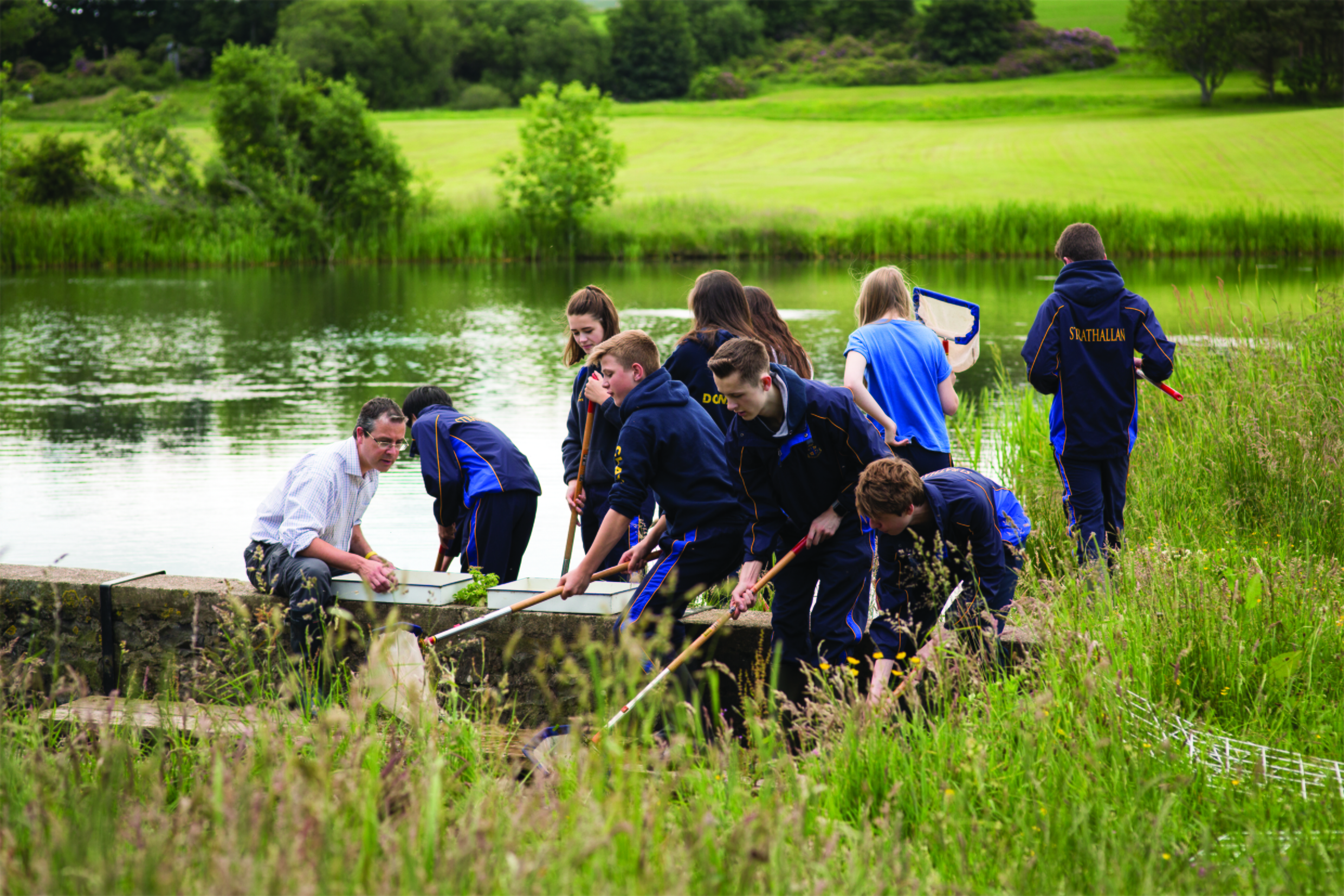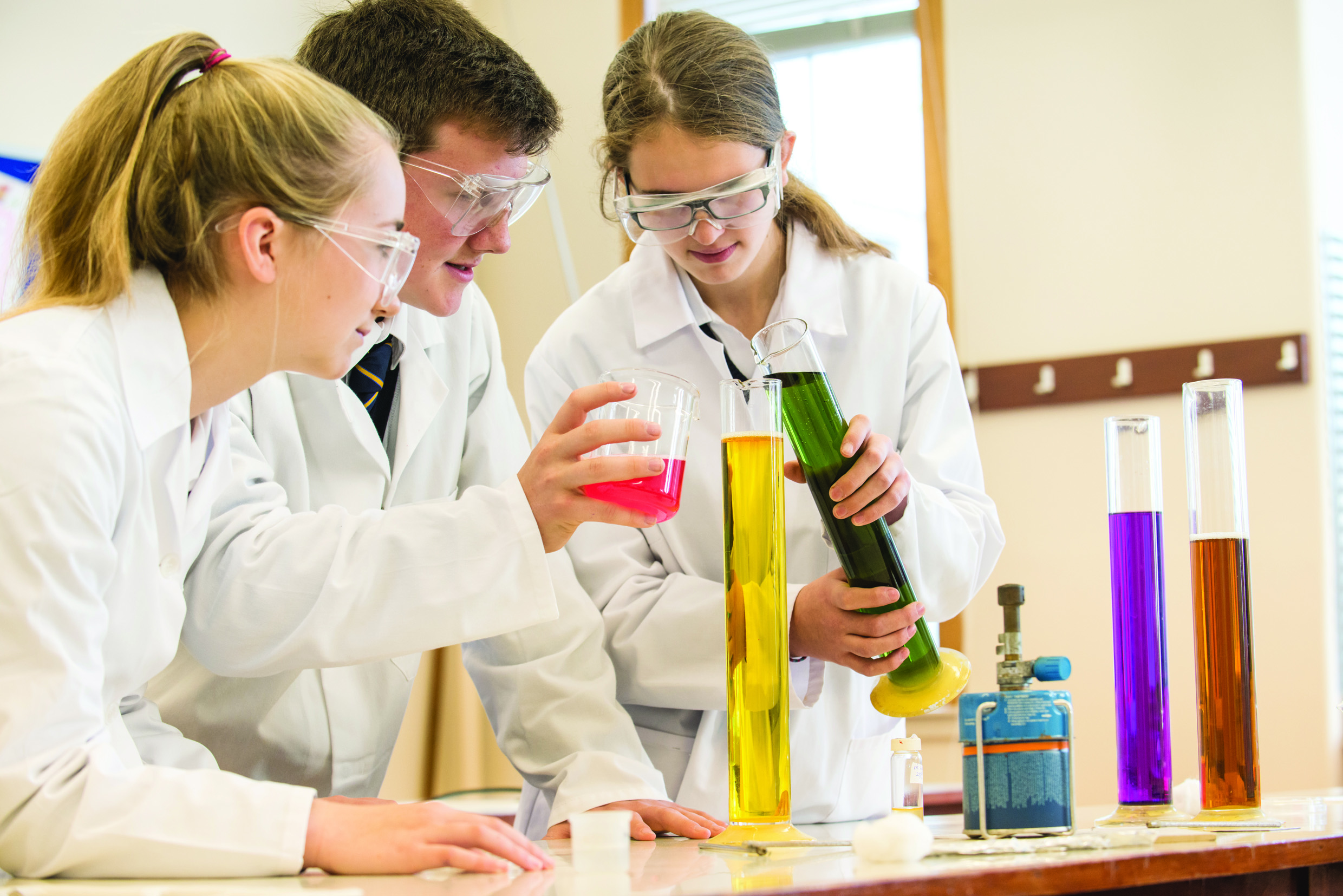“Learning happens in the minds and souls,
not in the databases of multiple-choice tests.”
Ken Robinson
Sir Ken Robinson is one of the world’s leading thinkers on education. In his multiple books and lectures he puts forward his belief that learning is about developing the whole person – that education should support the development of young minds for jobs that we do not yet know exist. “We are all born with extraordinary powers of imagination, intelligence, feeling, intuition, spirituality, and of physical and sensory awareness… Our task is to educate their (our students) whole being so they can face the future. We may not see the future, but they will and our job is to help them make something of it.”
As technology impacts on our social and economic landscape, many of the jobs we are familiar with today – from lawyers to accountants and medics to engineers will be transformed by the growth of automated processes so it is no surprise that educationalists and companies worldwide talk about the need for flexibility and ingenuity. We need to develop young people to be ready for the challenges of a world that is changing rapidly in all spheres of influence.
The leaders of tomorrow will need a diverse range of skills
In a recent study by one of the UK’s leading universities, academics from Birmingham University looked at the top ten skills required by employers in the UK and the USA. They cited the following as the key criteria for American companies, similar to their counterparts in the UK:
- ability to work in a team;
- ability to make decisions and solve problems;
- ability to plan, organise and prioritise work;
- ability to communicate verbally with people inside and outside an organisation;
- ability to obtain and process information;
- ability to analyse quantitative data;
- technical knowledge related to the job;
- proficiency with computer software programs;
- ability to create and/or edit written reports;
- ability to sell and influence others.
Add to these the skill sets of leading entrepreneurs, people such as Richard Branson of Virgin, Steve Jobs of Apple – words such as ingenuity, creativity, innovation and the ability to lead and inspire all come to mind, yet none of these are formal subjects taught in the classroom. Learning these skills is not something that happens quickly. Instead this social and intellectual development builds up over time by exposing young people to stimuli, to opportunities and to experiences that help to formulate character and provide a base of experience that forms a platform to build on throughout a lifetime.

The ethos of an all-round school
An all round school is essentially a school that believes in supporting the whole child, one where such a breadth of opportunities are provided that every child will find something to interest them and kindle their passion for learning. It is a school where the arts and sports are prized as highly as academic study and where young people can take part in activities that include outdoor learning, voluntary work, enterprise and more. Far from packing children off to “exam factories”, where increased pressure and emphasis on obtaining A grade results can have a detrimental effect on character building, extracurricular activities, after school clubs and the chance for children to explore and develop their own interests help contribute to an all-round education. As Anthony Seldon writes in the Guardian, it’s fundamental to “embrace character-building and all-round education not as an alternative to academic attainment, but as an essential adjunct of it.”
This additional learning creates the problem solvers of tomorrow, supports young people to be able to think critically, listen to others and share and explore common themes in the classroom. Likewise, these essential classroom skills also transcend to the sports pitch or boarding school dormitory. Learning to build relationships and friendships, interact positively with peers and teachers, as well as learning a level of care and empathy, all combine to develop the skills needed for our future leaders.
Studies evaluating the benefits of this type of approach show that:
- Students who tackle a broad subject range tend to have better developed life attributes, such as: creativity, persistence, and the ability to communicate and collaborate.
- A well-balanced education tends to give students a more positive outlook on learning.
- Exposure to the arts helps students develop more self-control and a better ability to cooperate with peers, coupled with less violent and aggressive responses
- Students who participate in some sort of education requiring movement and exercise tend to have higher cognitive abilities.
- Students are better able to adapt to life challenges when they’ve been faced with a wide range of academic challenges.
- Those who had a varied education tend to develop better study habits and perform better in college
- Younger students seldom know what their career will be. If they choose to switch careers suddenly, a well-rounded education will give them the basic understanding necessary to do so. It will also make it easier for them to explore different passions that arise throughout life.
The arts and extracurricular activities develop a plethora of attributes and contribute to academic learning
“A child needs to be able to interpret the world
before they can start to contribute to it.
To possess a creative understanding —
that is what makes a person whole.
Without a grounding in the arts, pieces will be missing.”
Muriel Gray, The Spectator
Sufficient data exists to overwhelmingly support the belief that study and participation in the arts is a key component in improving learning throughout all academic areas. Evidence of its effectiveness in developing better team players, fostering a love for learning, improving greater student dignity, enhancing student creativity, and producing a more prepared citizen for the workplace for tomorrow can be found documented in studies held in many varied settings, from school campuses, to corporate institutions.
In our post-industrial nation, the rise of creative industries is becoming increasingly key to our economic growth and our international profile. Studies have proved conclusively that teaching children to read music and play an instrument in their early years can increase their IQ. Hands-on participation in art and design is essential to building an understanding of the visual world. Drama makes sense of a complex emotional world, and interpretive movement can be considerably more beneficial than many sports in promoting body awareness, fitness, balance and a sense of beauty. Painting, drawing, sculpture, pottery, theatre, chess, charity work, Duke of Edinburgh, debating and competitions all provide interaction with others that develop confidence, encourage speaking in public, and require planning, preparation and time keeping.
Participation in sports is not so much about winning as taking part
The skills developed through the arts are echoed on the sports field. A healthy body and a healthy mind go hand in hand. Increasingly, schools are now offering a variety of sports which cater to all tastes and interests. From skiing to horseriding and the more traditional favourites of hockey, football and rugby, regular exercise is proven to enhance mental agility and to positively impact on academic work. Team building, collaboration, a sense of competition, skills development, dedication and focus – these are all attributes born out of participating in sports – at every level. And this is an important note – participation is more important than winning… learning by doing, learning from failure is one of the most important skills to develop resilience and critical thinking. Every successful business man or woman will tell you that you learn from your mistakes and all round schools provide a safe and supported environment where children can try and they can fail. And from both they will resurface and find new strengths.
Boarding life develops further skills
As well as life in school time, either in class or other activities, social sharing and co-habiting with peers brings its own lessons in life which have a profound impact on developing skills. Students learn autonomy, negotiation, collaboration and independence. They find ways to develop humour and assert their own selves, they understand different cultures, learn empathy and create friendships which last a lifetime. These all help develop a self-confidence and maturity that will go with them through life.

Tomorrow’s leaders – well equipped and prepared
Today’s world is witness to the Information Age. The primary sources of content information are no longer teacher lectures or textbooks. Learning is not limited to what we know, but is dependent upon how to find information and how to use that information quickly, creatively, and cooperatively. “We are in the twilight of a society based on data. As information and intelligence become the domain of computers, society will place a new value on the one human ability that can’t be automated: emotion (Jensen). Workplace demands are for students to understand how to solve problems, what makes arguments plausible, how to build teams and coalitions, and how to incorporate the concept of fairness into the everyday decisions. Tomorrow’s leaders need to be thinkers, possess people skills, be problem-solvers, demonstrate creativity, and work as a member of a team.
It is therefore essential that schools offer in-depth learning about the things that matter the most: order, integrity, thinking skills, a sense of wonder, truth, flexibility, fairness, dignity, contribution, justice, creativity and cooperation.
Visit any school that supports its pupils through a truly all-round education and these are the attributes that you will find.
About the author
| Fiona Duncan was Director of External Relations at Strathallan School from 2015 to 2019. She had worked in industry and higher education and had been previously Depute Director Corporate Communications at the University of Glasgow and Director of Recruitment and Marketing at the Royal Conservatoire of Scotland. She is married and lives with her husband David and English pointer, Ben. |
